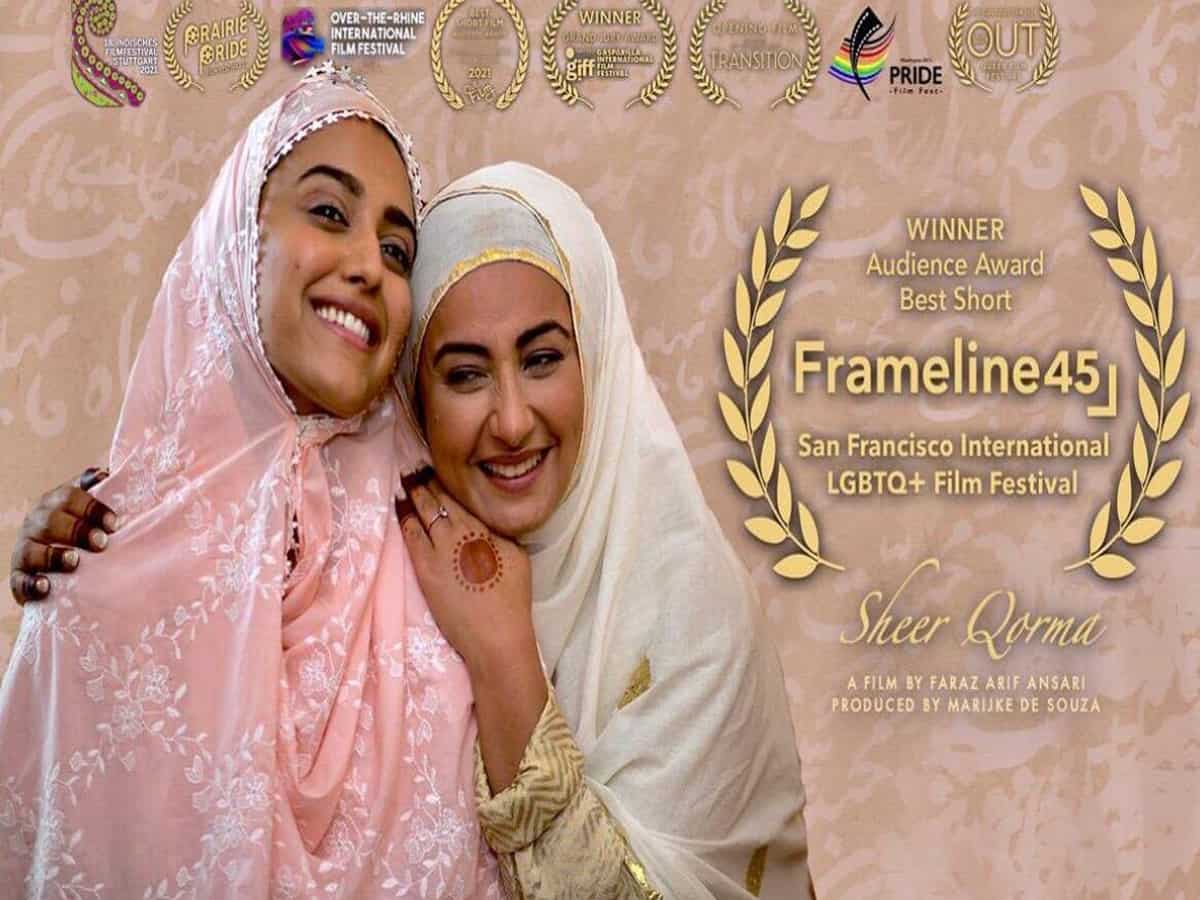
Bengaluru: With the Supreme Court looking into the same-sex marriage issue, one of the oldest civilisations, and the largest democracy in the world, waits with bated breath for the outcome.
For the LGBTQ community, after the historic moments in 2018 when homosexuality was finally decriminalised following the Supreme Court ruling, this could well be the next defining moment in its quest for equality in society.
Part of the prevailing optimism that things will change for the better, is fuelled by the changing societal attitudes towards issues like same-sex relationships.
The slow but steady acceptance of movies in this genre is also playing a part in changing perceptions towards sexual minorities.
Realizing the limited opportunities available to the community to bring their stories to the screen, UK-based Indian filmmaker Neeraj Churi started Lotus Visual Productions with the sole purpose of producing and promoting South Asian LGBTQ+ films worldwide.
He has been associated with several film projects including ‘Sheer Qorma’ (2021), ‘Queer Parivaar’ (2022), ‘Gair’ (2022) and ‘Muhafiz’ (2022).
The latest production by Neeraj, ‘Ek Jagah Apni’, has received global recognition for its raw portrayal of the transgender community.
‘Ek Jagah Apni’ was also selected for Cannes Marche Du Film 2022 as part of NFDC-Goes-To-Cannes. The film premiered at the Tokyo International Film Festival 2022 and won the Certificate of Merit as well as a special mention for two leads at the International Film Festival of Kerala 2022.
Churi feels that movies can be catalysts for societal change. “Those who are in the process of coming out, or are yet to come out probably feel more comfortable and less confused about their gender or orientation. They also feel less overwhelmed when they eventually decide to ‘come out’.”
Films and the media can build empathy and understanding. By amplifying marginalized voices and creating diverse perspectives, we can move towards a more equitable and just society where everyone feels seen, heard, and valued.
Cinema, when seen by the wider community hopefully helps them understand that the existence of the LGBTQ+ community is not just a Western implant, Churi told IANS.
He opined that legalizing same-sex marriage or broadening the term to marriage equality to include trans individuals, is not just a matter of equality, it’s a matter of dignity and humanity for those involved.
“It’s about providing the LGBTQ+ community with the same legal and social recognition that heterosexual couples receive. We are talking about access to insurance, medical benefits, financial nominations and the same benefits that spouses have. It’s about creating a more inclusive and accepting society that normalizes queer people as opposed to making them seem like objects to be afraid of,” he elaborated.
On a lighter note, the filmmaker feels that the legal sanctity of same-sex marriages will also lead to economic benefits for society at large.
“The Indian wedding industry is already a behemoth — $50 billion — and by opening it up to same-sex couples, we can tap into a whole new category of couples across the globe looking at India as a destination to get married. Here’s hoping that love prevails over hate and bias,” he signs off.



